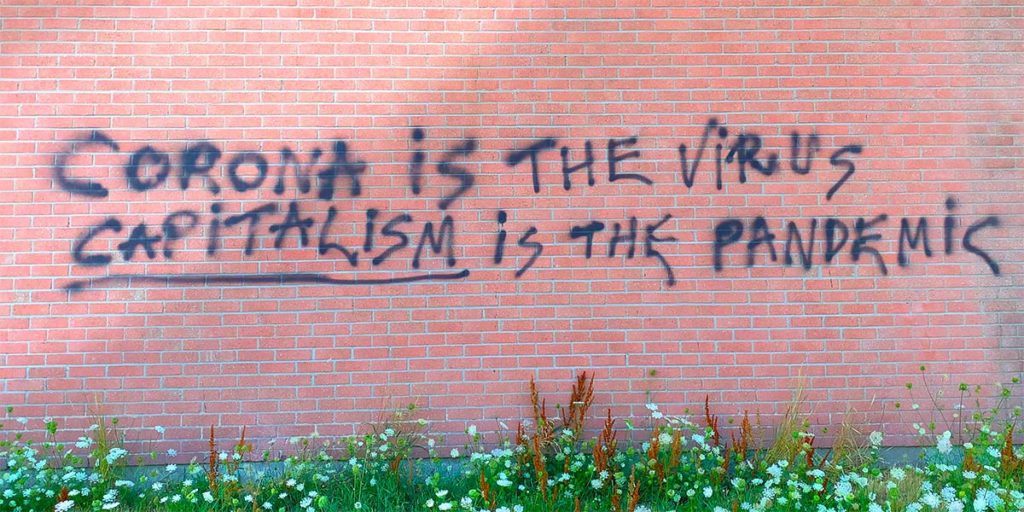The (New) Corporation

Image courtesy TIFF.
“In the early 2000s we made a film. THE CORPORATION. We argued that large, publicly-traded corporations are programmed relentlessly to pursue profit and growth, and had become the dominant institutions of our time. We showed that the corporation is deemed by law to be a person. It has the same rights, sometimes even more.”
The narrator refers to the 2003 documentary THE CORPORATION, in which a clear, coherent thesis was laid out: If the corporation were a person, what kind of person would it be? A psychopath, the movie argues. THE (NEW) CORPORATION is a continuation intent on examining, “How the corporation has changed, how it’s changing our world, and how it’s changing our sense of who we are.”
Numerous economists, activists, and journalists fire off palpable soundbites peppered amongst a panoply of shocking images and reams of alarming newspaper headlines. The documentary spans a variety of new developments in privatization, technocracy, fossil fuels, social responsibility, income inequality, pandemics, nationalism and white supremacy, police brutality, and the commoditization of human behavior itself.
As with its antecedent, the movie begins with some salacious quotes from various figures, including John Coyne, Vice President and General Counsel of Unilever Canada, “That cult of shareholder value has seen its day as the narrow construct for how corporations operate in society.”
“There is no such thing as corprorate social responsibility,” says economist Robert Reich.
Journalist Paul Mason opines, “For many businesses the commitment to the triple-bottom line—of people, profit, planet—is real. The problem is the capitalist system as a whole is not committed to that.”
Another prominent figure, Klaus Schwab, founder of the oft-vilified Davos Summit, says that corporations now have a social responsibility. The narrator argues that this is part of the branding of the New Corporation. Technocrats like Bibop Gresta are told to woo bankers such as Jamie Dimon of JP Morgan Chase by hitting on key points of interest. In Dimon’s case, this means talking about Detroit. The film questions Dimon’s interest in Detroit as it was JP Morgan Chase that contributed to the systemic financial collapse of 2008. The same crooks who put Detroit in this mess, the filmmakers argue, now want to bail them out? Or do they seek to privatize its infrastructure so they can add that to their portfolio?
For all its valid, individual observations, THE (NEW) CORPORATION remains largely an unfocused refrain of many points already eloquently and concisely woven into a cogent narrative the first time around. The sophomore doc never quite connects the dots as elegantly as its predecessor or Charles Ferguson’s 2010 documentary, INSIDE JOB, which walks us through every link in the systemic chain of events leading up to the 2008 financial collapse.
There’s no shortage of use cases to more clearly substantiate their hypothesis, but instead so many headlines, clips, faces, facts, and figures, are thrown across the screen that the average person will get lost in the deluge of information.
Why not use the 2016 election as a thesis to illustrate the series of events that led to social media platforms becoming unwitting, and sometimes very witting, accomplices, even architects, of the rise of fascism? We see the logo of Cambridge Analytica, accompanied only by vague examples, not detailed deconstructions of how such entities utilize our digital footprints to create targeted ads, emails, robocalls, social feeds—all designed to antagonize and condition us.
How about drawing the connections between the NRA, private equity companies that invest in gun manufacturers, Russian active measures programs, American firearms legislation, and the rise of far right terrorism.
The film touches upon the opioid crisis but never even mention Purdue Pharma or the Sackler Family.
Co-directors Jennifer Abbott and Joel Bakan seem unsure of what they want to say, unless it’s meant purely to dazzle those already in their corner. But platitudes and posters isn’t how you effect change. At the end of the first act, there is an instructive framework offered up by Angelo Gavrielatos, President of the New South Wales Teacher’s Federation. He describes the phenomenon known as “Starve The Beast” whereby corporations, lobbyists, and their government allies:
- Create a crisis
- Deny resources
- Privatize
And out of this framework arises all of the other effects, income inequality, inadequate infrastructure, capacity planning and disaster preparedness, poverty, and so on. THE (NEW) CORPORATION has all the dominoes, but fails to line them up and knock them over in one push.
THE (NEW) CORPORATION is currently screening at the 45th Toronto International Film Festival.